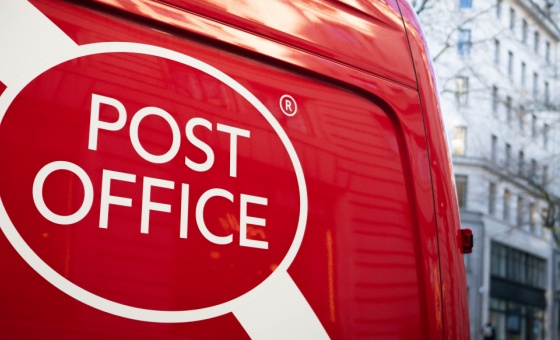This is the last article you can read this month
You can read more article this month
You can read more articles this month
Sorry your limit is up for this month
Reset on:
Please help support the Morning Star by subscribing here
STEP aside from traditional pro/anti-monarchy arguments for a moment. There’s a more interesting space to dig into.
Public expressions of loss and insecurity are entirely rational. We have much to feel insecure about.
Energy price rises, food shortages, floods, fires, famine, toxic air, sewage discharges and business collapse queue up threatening to trash the lives of millions in Britain (and more beyond).
For many, the Queen’s death offers a pretext to express collective insecurity.
Politically, the most interesting angle on this is the notion that the Queen came to symbolise the distinction between public service and private interests. Given the government we are saddled with, it is a political divide we should make the most of.
Under a Truss government, private interests will be invited to gouge the economy. The rich will be cosseted. The rest will be thrown crumbs (or loans).
As Britain lurches from one crisis to another the Truss administration will look more like a crop blight than a government.
One glance across her Cabinet is all you need to know. Skip past the fact that 68 per cent of ministers are drawn from private, fee-paying education; a route closed off to 94 per cent of British children. More important is that all are devotees of the ultra-right economics (and politics) that lies behind today’s mess.
The purge
Gone are all the one-nation Tories; an increasingly endangered species on Tory benches.
Truss’s armada of advisers looks more like a “Make Feudalism Great Again” movement. This much is clear from their response to the energy crisis.
Truss was never going to slap a windfall tax on oil and gas corporations. Post-university she worked for Shell; negotiating liquid natural gas contracts for them, fully knowing how much effort they put in to climate denial and market deregulation.
Her proposals have nothing to do with the mythology of free markets driving productivity up and prices down.
Corporate feudalism is what propels Truss; the delivery of uninterrupted corporate profits on the back of widening civic (and democratic) impoverishment.
Scammers to the rescue
Given this, Truss was always going to back any scam the industry threw her way.
The proposal to use government-backed guarantees, allowing the energy sector to then “self-fund” a short-term price cap, was just what she needed.
This might get some people through the winter, deflect public attention from corporate profiteering, and allow the energy sector to recoup the money later through guaranteed price increases. It ticked all her boxes. But for the rest of us it’s a disaster.
Perversely, it fell to a one-nation Tory to spell this out. Lord Deben, chair of the climate change committee, took to the airwaves explaining that it is complete folly to dance to a tune that chases gas prices around the room, and then pretends it is coherent policy-making.
The value of any short-term price cap would come only if it also breaks Britain’s rigged energy market.
Unlocking new oil and gas exploration licences, or chasing the follies of fracking, fuels the problem not the solution. By a country mile, the cheapest energy today is also the cleanest.
The price of electricity from solar and wind tumbles at rates that are eyewatering. But the market price for both is set by gas.
In theory, big generators of zero-carbon electricity are locked into contracts requiring them to sell at fixed/ lower prices. But nothing stops them selling to parent companies (or partners) who resell at exorbitant market rates.
Good for profiteering, not for the public. But break the market and you could create a new one that revolves around reducing both costs and carbon.
Deben’s second point was no less important; reducing energy consumption is as critical as cleaning it up. For a fraction of the £150 billion the proposed price cap might come to, Britain could be insulating the nation’s homes.
Keeping people alive and cutting carbon consumption is a win-win strategy for everyone, apart from the carbon kleptocracy.
Feeding the problem
It isn’t just Big Oil and Gas that Truss panders to. Developers are knee-deep in the corruption too. Gone are Britain’s zero-carbon housing commitments. Energy-plus housing doesn’t even get a look in.
And housing improvement obligations have been dumped because rentier capitalism wants no such restrictions on profit taking.
In Truss’s Britain, landlords can earn £50,000 a year (or more) from a multiple occupancy student-let. None want a duty to cut energy costs that come with the property.
Their influence encouraged Conservative governments to pillage Labour’s home insulation programme, ensuring that energy efficiency improvements went awol.
This is a moment that calls out for radical alternatives. The trouble is that Labour doesn’t seem in a mood to embrace them; especially if they are market disrupting.
But with some courage and imagination, Britain could:
• Follow the Netherlands and refuse planning permission for any new building connected to the gas grid.
• Require all new properties to generate a proportion of their own (renewable) energy consumption.
• Make all buildings that are reliant on mechanical air conditioning systems ineligible for any form of tax relief.
• Offer zero-interest loans for housing improvement work that raises energy efficiency standards to “BandB” and above.
• Place a statutory duty on energy networks (DNOs) to cut carbon emissions by 10 per cent per year and energy consumption by 5 per cent per year, (forcing DNOs into investment partnerships with industry and housing providers).
• Set a high “carbon tax” on all oil and gas imports.
• Follow Denmark, by redefining energy as a “not-for-profit service” instead of a “market.”
• Create a national framework of democratically accountable, decentralised, renewable energy systems, each with their own “Right of Local Supply.”
• Replicate the German KfW Development Bank, promoting integrated networks of clean energy storing, sharing and generating (with zero-interest rates offered to not-for-profit networks).
• Ditch fracking; investing instead in drawing heat from the 25,000 flooded galleries of disused coalmines around the country. They are already doing so in the Netherlands. In Britain, one in four homes are within supply distance of such “renewable” heating. Backed by booster systems of air-source and ground-source heating, Britain could turn its back on the carbon casino forever.
I don’t want to overtax Labour thinking with a longer list of ideas, but the opportunities are vast.
Everything begins from a willingness to break today’s rigged energy market. First, ditch the obsession with gas and oil. Then junk the subsidies and tax allowances that only feed the energy oligarchs.
Public fear and anxiety about today’s crises will not go away. No amount of grieving over a lost Queen will allay them. It is still possible to offer a more secure and inclusive future, but not by tinkering. This is the leadership the public hungers for. It is the big challenge facing Labour.
The King and I
This brings me to more of a reflection than a confession. Some 15 years ago, while still an MP, I got an invitation from Prince Charles.
I don’t know how, but he had become intrigued by the eco-house conversion I had done, and with my work on feed-in-tariffs, decentralised energy and climate change.
It seemed perverse that part of the Palace was more interested in such a conversation than the Labour leadership (Ed Miliband excepted). But there you go.
Charles was well ahead of the game. Party politics was a secondary issue. He simply understood what the likes of David Attenborough, Vandana Shiva and James Lovelock had been telling us for decades.
His interests were entirely around ecosystem survival and how to live sustainably on the only planet we have.
It was an enlightening conversation, but at that time neither he nor I were going anywhere. In the event, he seems to have fared somewhat better.
But for answers to the climate turbulence we now face, and the dramatic carbon reductions this calls for, which politicians should the new King turn to?
Caroline Lucas certainly understands both the issues and the urgency. Lord Deben does too. John McDonnell (as shadow chancellor) grasped that economics has to be rewritten around annually reducing carbon budgets.
But beyond that there is a dearth of vision and leadership.
Labour has a chasm of catching up to do. But so too does the left.
Surely, the task can’t be left to the monarchy. Even absurdity has its limits.
Alan Simpson was Labour MP for Nottingham South from 1992 to 2010.











